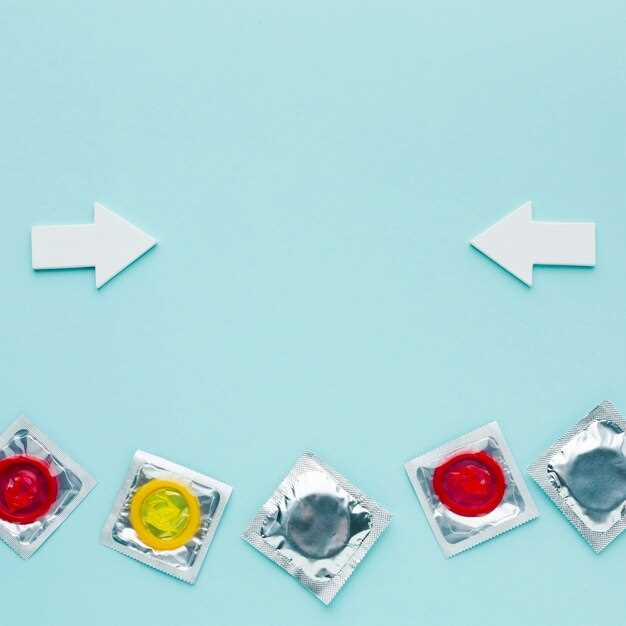
Getting tested for sexually transmitted diseases (STDs) is an essential step in maintaining both your health and the health of your partners. Many people feel uncertain about where to go for testing or how to navigate the process, but the good news is that there are numerous options available near you. Whether you’re looking for a private, walk-in clinic or prefer to schedule an appointment online, testing is more accessible than ever.
In this guide, we’ll explore various testing locations, from local health centers to specialized clinics. You’ll learn about the convenience of nearby services, how to choose the right facility for your needs, and what you can expect during the testing process. It’s important to understand that getting tested regularly is a proactive step in your overall well-being and helps in preventing the spread of infections.
Don’t wait to get tested–knowing your status is the first step toward a healthier future. Finding a nearby clinic that offers accurate, confidential, and fast results can help alleviate any stress or uncertainty you may feel about the process.
Finding Local STD Testing Services

When it comes to finding an STD testing service near you, there are several reliable options to consider. Many communities offer accessible clinics and testing centers, ensuring that you can easily get tested without long waits or complex processes. Here are some common places where you can find local STD testing services:
- Public Health Clinics: Local health departments often provide affordable and confidential testing services. These clinics may offer free or low-cost testing, depending on your location.
- Private Medical Offices: Many private healthcare providers offer STD testing as part of their general health services. You can contact your primary care physician or a local specialist to inquire about testing options.
- Walk-in Clinics: Convenient for those seeking quick and anonymous testing, walk-in clinics typically allow you to get tested without an appointment, making them a flexible option for busy schedules.
- Planned Parenthood: Known for providing sexual health services, Planned Parenthood offers a range of STD tests, and many locations accept walk-ins or same-day appointments.
- Online Directories: Use online resources and directories to search for nearby testing facilities. Websites such as the Centers for Disease Control and Prevention (CDC) or HealthMap can help you locate testing sites quickly.
Be sure to research the services available in your area, checking for the specific types of tests offered, availability, and confidentiality measures. Some testing locations may also provide additional support, such as counseling or treatment options, making it easier for you to manage your sexual health.
Convenient Walk-in Clinics for Testing
Walk-in clinics are an excellent choice for individuals seeking quick and convenient STD testing without the need for an appointment. These clinics often have flexible hours, allowing you to get tested at a time that fits your schedule. Many walk-in clinics provide confidential services, ensuring your privacy throughout the process. Here’s what you can expect when visiting a walk-in clinic for STD testing:
Many walk-in clinics also offer additional health services such as vaccinations, treatment for infections, and preventive care. If you’re looking for a fast and straightforward testing experience, walk-in clinics can be a reliable and accessible option for getting tested today.
How to Choose a Nearby Health Center

Choosing the right health center for STD testing can ensure a smooth, efficient, and confidential experience. When selecting a nearby facility, consider the following factors to make an informed decision:
- Location and Accessibility: Look for a health center that is conveniently located near your home or workplace. This can reduce travel time and make it easier to access care when needed.
- Testing Options: Ensure the center offers the specific STD tests you need. Some clinics may provide a comprehensive range of tests, while others may specialize in certain conditions.
- Confidentiality and Privacy: Choose a health center that prioritizes your privacy. Ensure that the facility keeps your personal and medical information confidential, and provides a private setting for your test.
- Cost and Payment Methods: Compare the cost of testing at different centers. Many health centers offer sliding scale fees or accept insurance, while others may provide free or low-cost testing based on eligibility.
- Reviews and Reputation: Check online reviews and ratings from other patients. A reputable center with positive feedback is likely to provide quality care and a comfortable testing experience.
- Availability and Appointment Flexibility: Consider the center’s hours of operation. A health center that offers extended hours or walk-in services may be more convenient if you need a test quickly.
By considering these factors, you can find a nearby health center that fits your needs, ensuring you receive accurate results and the necessary care in a timely manner.
Online Resources for Quick STD Tests
In today’s digital age, accessing STD testing services has become easier through various online resources. Several platforms allow you to order home test kits or find testing centers in your area. Here are some options to consider:
- At-Home Testing Kits: Many companies offer discreet, at-home STD testing kits that can be ordered online. These kits typically involve self-collection of samples (such as urine, blood, or swabs) which you then send to a lab for analysis. Results are usually available within a few days.
- Online Directories: Websites like HealthMap and the CDC’s locator tools provide search functions to help you find nearby testing centers. You can filter results based on the types of tests offered, hours of operation, and location.
- Telehealth Services: Some healthcare providers offer virtual consultations, allowing you to discuss your symptoms or risk factors with a medical professional. Based on your conversation, they may recommend nearby clinics or even send you an at-home testing kit.
- Testing Providers with Online Booking: Certain testing services, such as Everlywell or LabCorp, allow you to book appointments for in-person testing directly through their websites. These platforms make it easy to find a nearby lab and schedule a visit at your convenience.
Using online resources for STD testing provides flexibility, speed, and privacy. Whether you prefer the convenience of at-home testing or need help finding a local clinic, these platforms can help you take control of your sexual health with minimal effort.
Understanding Costs and Payment Options
When considering STD testing, it’s important to understand the costs involved and the payment options available. Prices can vary depending on the type of test, location, and the facility you choose. Here’s a breakdown of what to expect:
- Cost of Testing: The price of STD tests can range from as low as $20 to $300 or more, depending on the test(s) being conducted. Basic tests for common STDs such as chlamydia, gonorrhea, or HIV may be less expensive, while comprehensive panels that test for multiple infections will generally cost more.
- Insurance Coverage: Many health insurance plans cover STD testing, especially if it’s part of a routine checkup or prescribed by a doctor. If you’re insured, contact your provider to verify coverage details and find out which testing centers accept your plan.
- Sliding Scale Fees: Some clinics, particularly public health departments or nonprofit organizations, offer sliding scale fees based on your income. This ensures that testing is affordable for individuals with limited financial resources.
- Free Testing Options: Certain clinics, especially those run by local health departments or community organizations, may offer free STD testing. These services are often funded by government programs or grants, making them accessible for people without insurance or who are facing financial difficulties.
- Payment Plans and Financing: If you need testing that isn’t covered by insurance and cannot afford to pay upfront, inquire about payment plans or financing options. Some facilities allow you to pay for your testing in installments or offer discounts for upfront payments.
Before scheduling an appointment, it’s a good idea to check with the testing facility about costs and payment options. Understanding your financial responsibilities beforehand can help you make an informed decision and avoid unexpected expenses.
Confidential and Anonymous Testing Locations

If you’re concerned about privacy, finding a testing location that offers confidential or anonymous services is essential. Many clinics and testing centers prioritize patient privacy, ensuring that your personal information and test results remain secure. Here’s what you should know:
- Confidential Testing: Confidential testing means that your personal information is protected, but your identity is still recorded in the clinic’s system. Results are only shared with you, and some facilities offer additional privacy measures, such as private consultation rooms.
- Anonymous Testing: Anonymous testing allows you to get tested without providing any personal identifying information. You may receive a unique code to track your results, ensuring that your identity is never revealed. This option is available at certain public health clinics or nonprofit organizations.
- Testing at Planned Parenthood: Many Planned Parenthood locations offer confidential and sometimes anonymous testing. They focus on providing a private environment where patients can feel comfortable discussing their sexual health.
- Community Health Centers: Local health centers often offer confidential testing services. These centers may also provide counseling, education, and resources for individuals who need ongoing support.
- Online Testing Services: Some online platforms, such as Everlywell or LetsGetChecked, offer at-home STD testing kits that are both confidential and convenient. You can order the test, complete it at home, and send the sample to a lab, with results delivered securely online.
Regardless of where you choose to get tested, it’s important to confirm that the facility offers the level of confidentiality or anonymity that you desire. Many locations will have staff available to answer any questions about their privacy policies before you proceed with testing.
What to Expect During an STD Test
Understanding what happens during an STD test can help reduce anxiety and ensure you’re fully prepared. The process is generally straightforward, and you can expect the following steps:
- Registration and Check-in: Upon arrival, you’ll be asked to complete a registration form with basic information, such as your name, contact details, and medical history. Some clinics may also ask about your sexual activity to determine which tests are necessary.
- Sample Collection: Depending on the type of STD test, the healthcare provider will collect a sample. This could involve:
- Blood draw for HIV or syphilis tests
- Urine sample for chlamydia or gonorrhea testing
- Swabs from the genitals, throat, or rectum for other infections
- Test Duration: The actual sample collection is usually quick, lasting only a few minutes. In most cases, the healthcare provider will ensure you’re comfortable throughout the process, and any minor discomfort should be brief.
- Privacy and Confidentiality: Throughout the testing process, your privacy will be respected. The staff will ensure that you’re in a private setting and that your personal information remains confidential.
- After the Test: Once your sample is taken, you’ll be given instructions on when and how you’ll receive your results. Some tests may take a few days, while others, like rapid HIV tests, can provide results on the same day.
Overall, the process is quick, and the staff are trained to ensure you’re comfortable and informed at every stage. Remember, getting tested is a routine part of maintaining sexual health, and there’s no need to feel embarrassed or nervous.

